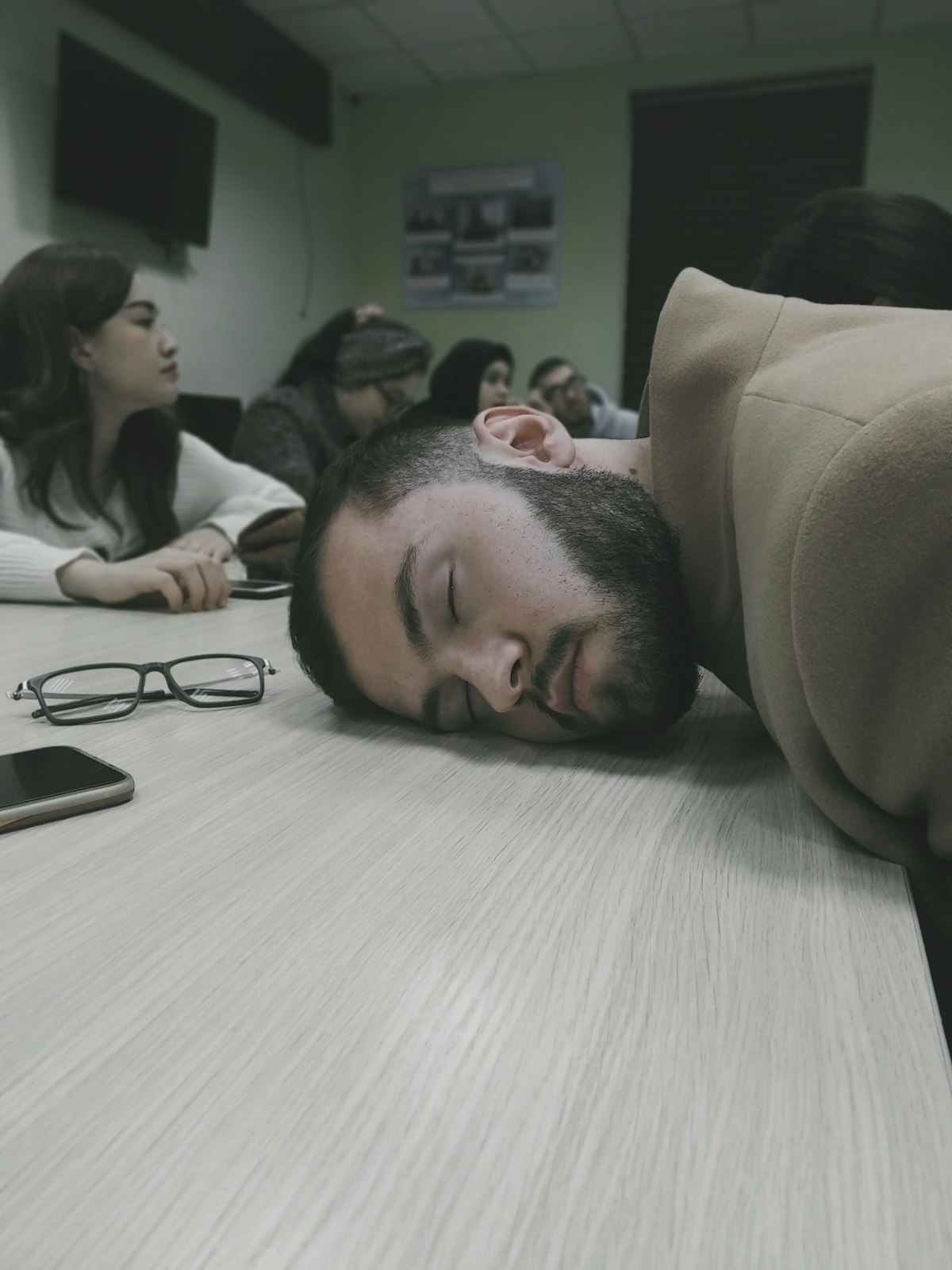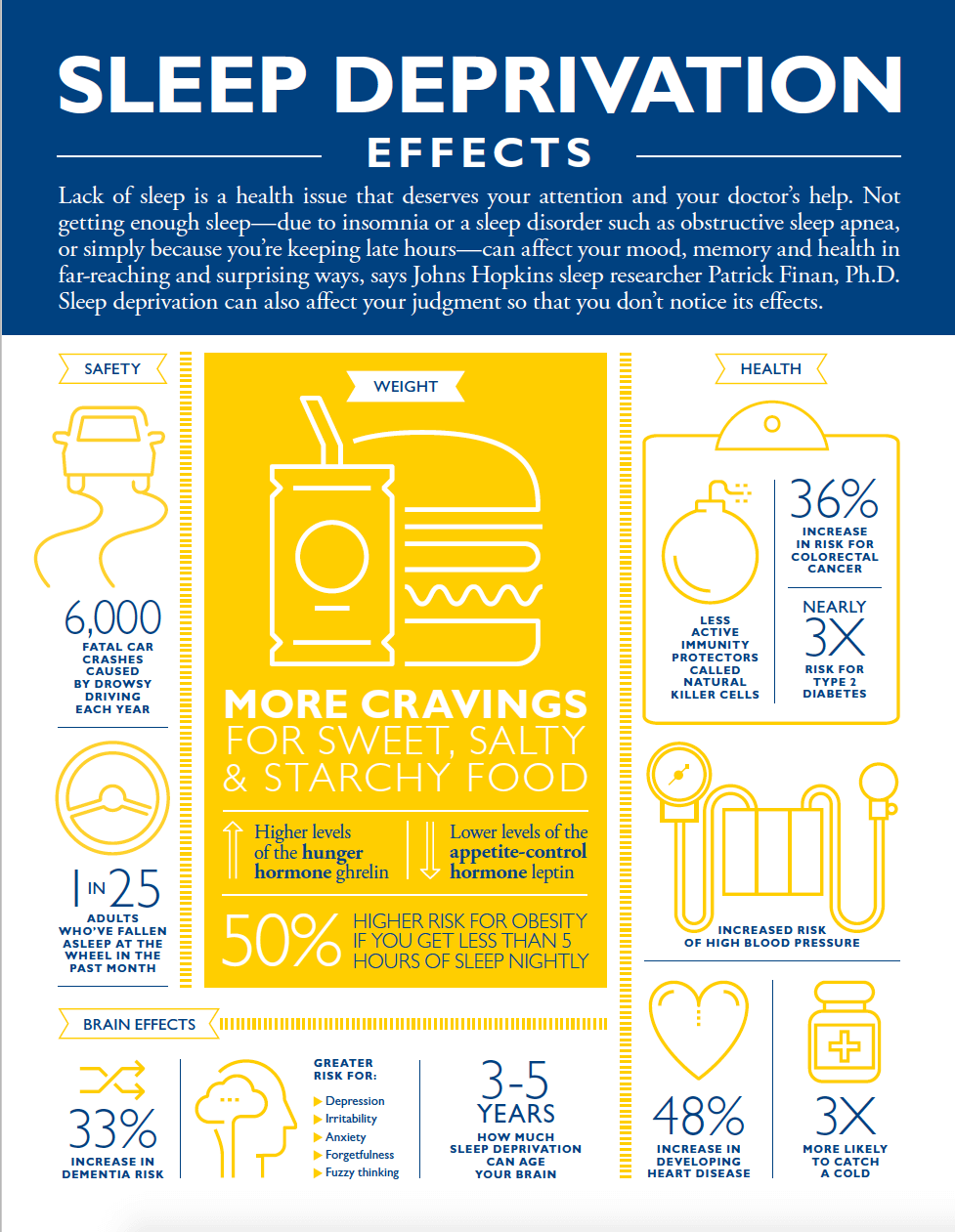the negative effects of sleep deprivation

Renowned sleep researcher William Dement said, "Sleep is not an optional lifestyle luxury. Sleep is a non-negotiable biological necessity."
Sleep deprivation occurs when individuals fail to get sufficient rest required to maintain their health and well-being. Many individuals willingly sacrifice sleep for work, school, or leisure activities, but even a single night of inadequate sleep can leave them feeling tired, less productive, and prone to making mistakes the following day.
A considerable number of people in the United States experience difficulty sleeping, with approximately one-third of adults getting less than seven hours of sleep each night. This lack of sleep leads to the accumulation of sleep debt.
As the sleep debt grows over time, it takes a toll on both mental and physical health. Prolonged sleep deprivation can significantly reduce one's quality of life and may also increase the risk of various health issues, such as obesity, diabetes, and cardiovascular disease. Prioritizing sufficient sleep is essential to avoid the detrimental consequences of sleep deprivation and to maintain overall health and well-being.
Let’s discuss some negative effects of sleep deprivation in brief:
- Impaired Focus and Concentration: One of the most apparent consequences of sleep deprivation is its impact on our ability to focus and concentrate. Dr. David Dinges, a sleep expert, warns, "Sleep deprivation negatively affects attention, alertness, concentration, reasoning, and problem-solving." When we are sleep deprived, our brain struggles to process information efficiently, leading to reduced productivity and poor decision-making.
- Memory Impairment: Lack of adequate rest takes a toll on our memory functions. During deep sleep, our brain consolidates memories, helping us retain and recall information effectively. Without sufficient rest, memories become fragmented, and the ability to learn new things becomes compromised. Renowned neuroscientist Matthew Walker states, "Sleep is essential for learning, memory, and creativity. It is during deep sleep that our brain consolidates memories, and without it, we suffer."
- Emotional Instability: Sleep deprivation also takes a significant toll on our emotional well-being. As sleep dwindles, our emotional regulation weakens, leading to increased irritability, mood swings, and a higher likelihood of experiencing anxiety and depression. As Dr. Walker notes, "The less you sleep, the more emotional you become. It's almost a bit like being an emotional teenager again."
- Physical Health Issues: Beyond emotional turbulence, sleep deprivation is closely linked to physical health issues. A lack of sleep weakens the immune system, making us more susceptible to illnesses and infections. Moreover, sleep deprivation is associated with an increased risk of chronic conditions such as obesity, diabetes, and cardiovascular diseases. A study published in the Journal of Clinical Sleep Medicine highlighted that insufficient sleep was associated with a higher risk of heart disease and stroke.
In our pursuit of success and productivity, we often underestimate the importance of sleep, choosing to sacrifice it for other priorities. (I must confess I’m equally guilty of this faulty behavior and am trying to get better.) However, we must realize that sleep is not a luxury but a necessity. As neurologist Nancy Foldvary-Schaefer emphasizes, "Sleep is like a bank account. You can't keep withdrawing from it without making deposits." Just as we need food and movement, we need sleep to function optimally.
To counter the negative effects of sleep deprivation, we must:
- Prioritize our sleep routines.
- Create a consistent sleep schedule, aiming for 7-9 hours of sleep each night.
- Avoid caffeine and electronics before bedtime, as they disrupt the natural sleep-wake cycle.
- Practice relaxation techniques such as meditation or reading to unwind before sleep. (I personally enjoy listening to audiobooks, both fiction and non-fiction, along with some mantras/hymns before sleeping.)
To summarize, sleep deprivation takes a heavy toll on our physical, mental, and emotional well-being. The consequences are not merely short-term but can have lasting impacts on our health and overall quality of life.
As a society, we must recognize the value of sleep and prioritize it as an essential pillar of our well-being. Embracing the restorative power of sleep can lead us toward healthier, happier, and more fulfilling lives.
. . .
I humbly suggest you refer to this eye-opening infographic by Johns Hopkins Medicine to learn more about the effects of sleep deprivation.



